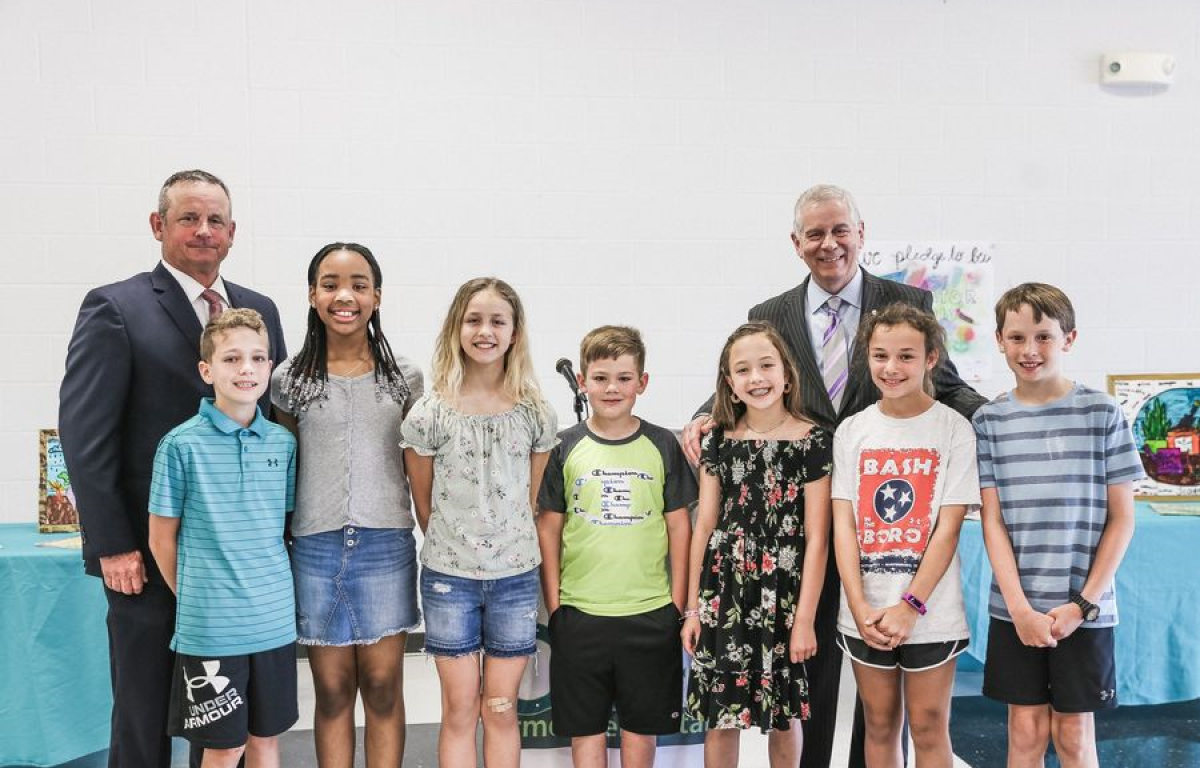CLARKSVILLE, TN (CLARKSVILLE NOW) – The first annual Pollinator Partnership Week kicked off Monday in Clarksville with help from the fourth graders of Carmel Elementary School. The week will conclude with a guided hike at Dunbar Cave State Park.
CMCSS Spokesman Anthony Johnson told Clarksville Now fourth graders at Carmel Elementary School were buzzing with excitement when Clarksville Mayor Joe Pitts and Montgomery County Mayor Jim Durrett visited the school on May 17.
“The mayors, along with the Clarksville-Montgomery County Beekeepers Association and The Food Initiative, listened to the students speak about the need for a Pollinator Partnership Week in Clarksville Montgomery County,” Johnson said.
Several students spoke to the mayors about the need to bring awareness (what) pollinators do to help produce beautiful gardens and food to eat.
“Jade Baker shared the important role pollinators play in an ecosystem,” Johnson said. “Teagan Standage urged the community to create more gardens and Nathan Attardi hopes Pollinator Week could become a national holiday.”
Johnson said the students worked hard to write letters and advocate for the pollinators. Their hard work paid off, and on May 24, both mayors declared a joint proclamation on Montgomery County, Tennessee Facebook page declaring the week of June 20 to June 27.

Other Advocates
Carmel Elementary students are not the only ones advocating for pollinators to be recognized. Emmalee “Holly” Taylor, assistant state naturalist for Tennessee State Parks, offers guided tours to educate Tennessee residents about what pollinators do for the environment.
On Sunday, Taylor will host the first Pollinator Walk in Clarksville at Dunbar Cave State Park, beginning 9:00 a.m.. The hike will include a tour through The Prairie Restoration, a project between Southeastern Grasslands Initiative and the Austin Peay University, and the Three Sisters Garden. The event is free and open to the public.
“Five years ago, it had been a hayfield, and while I am not sure who initiated the project, it took five years to restore it to a prairie habitat,” she said. “It is about three miles total, and I will just be helping people to identify what they are looking at, like native bees,” she said. Taylor said the conversations will also explore what makes native bees so special, what they pollinate, and why they are so important.
Taylor started doing Pollinator Walks at Cedar Glades in Nashville, Tennessee last year as a way to promote awareness about pollinators and their important work.
“Over the last 75 years, there has been a 40 percent loss of native pollinators. “Alot of that is due to habitat loss,” she said. “In addition to habitat loss, widespread pesticide use (is another factor),” she said.
Being a good neighbor for pollinators
Taylor said spaces do not have to be large for someone to help foster pollinators and help the population and people who live in the country or the city can make an impact.
“It is extremely important,” she said. “About 35 percent of our crops are pollinated by bees, and 75 percent of all flowering plants rely on a pollinator.”
Taylor said she was surprised to find out there is a lot of bee diversity that can be found in major cities. “I discovered there are more species of bees in the city than in the country. To me that was surprising; it just goes to show how adaptable they are,” she said.
Taylor said there are ways to help create habitats for pollinators even in the city. “It really doesn’t take much space; you can just use pots to grow plants and vegetables in. The two main things to remember are to plant native plants and to make sure you plant a variety of plants.”


